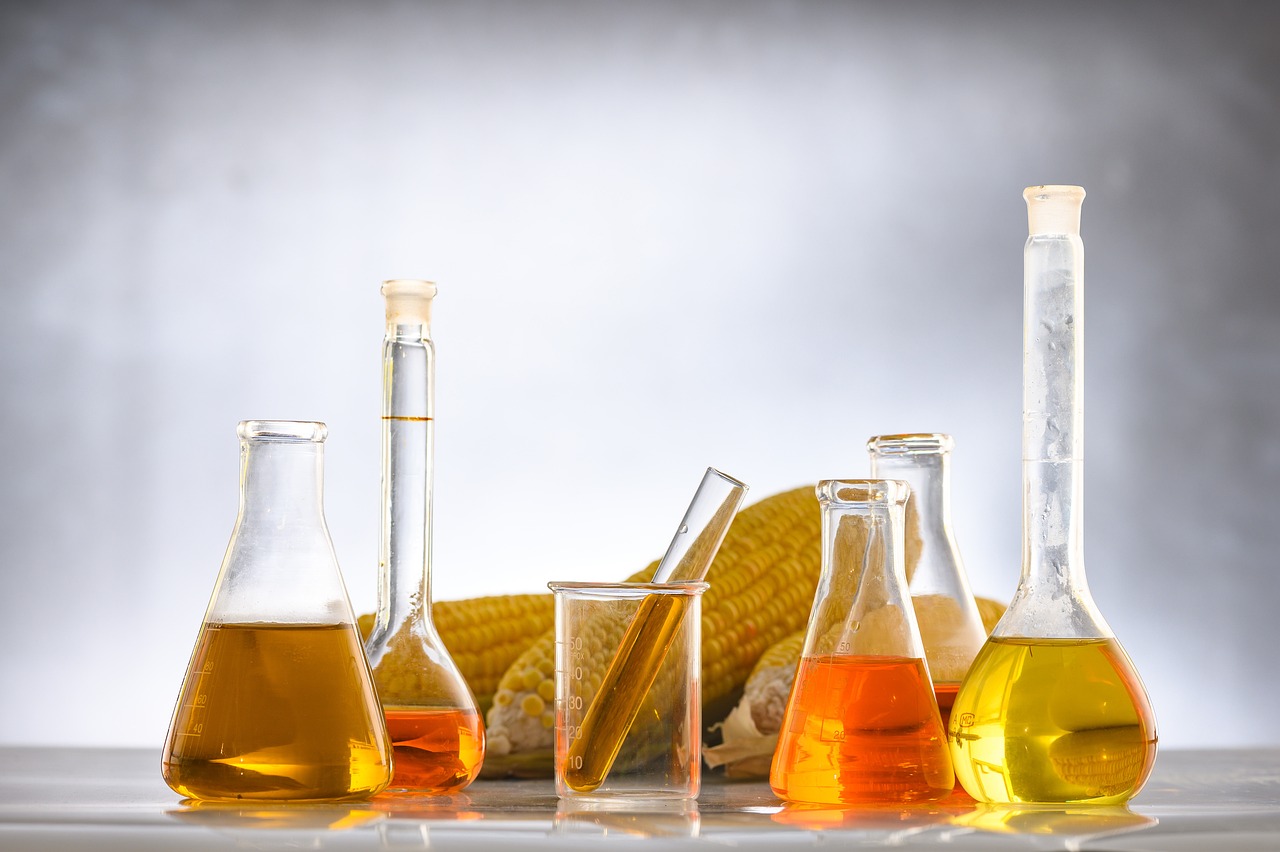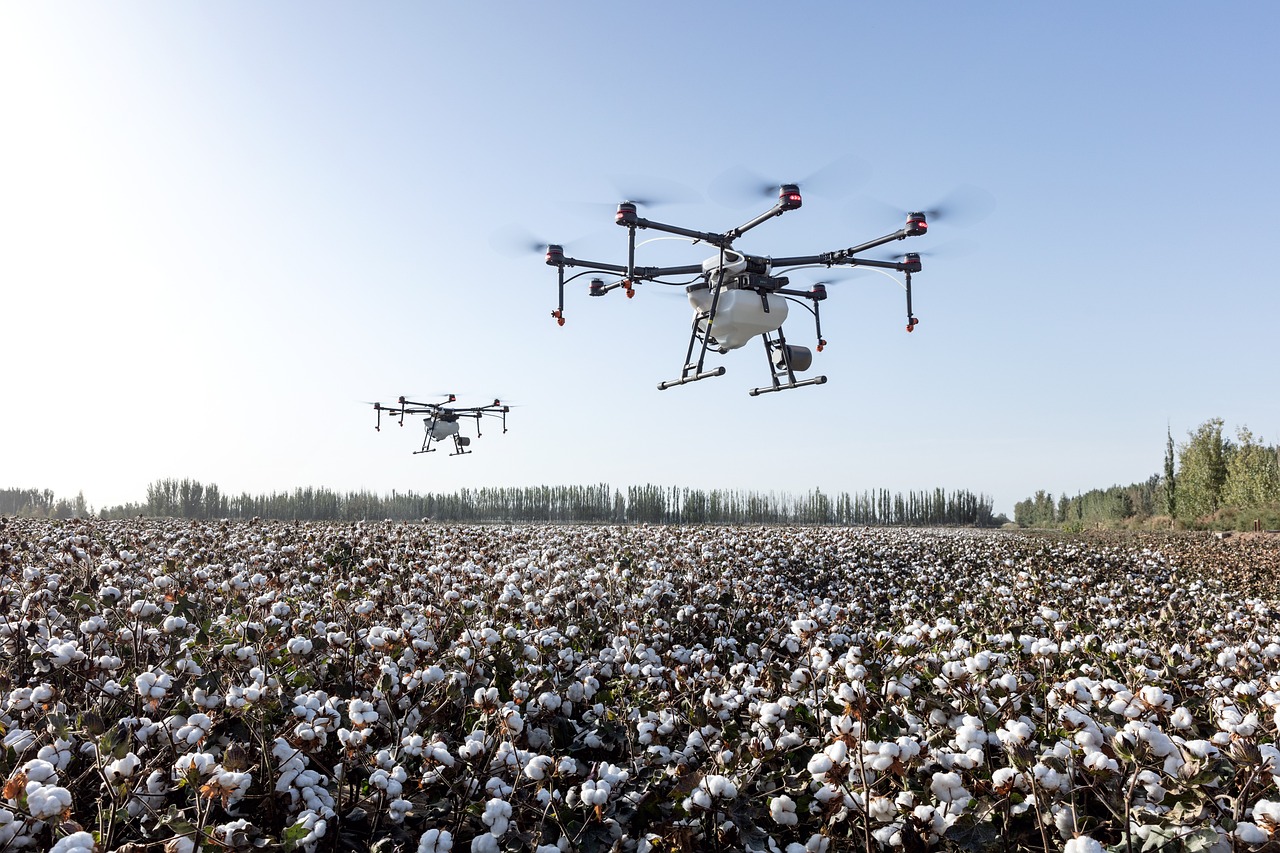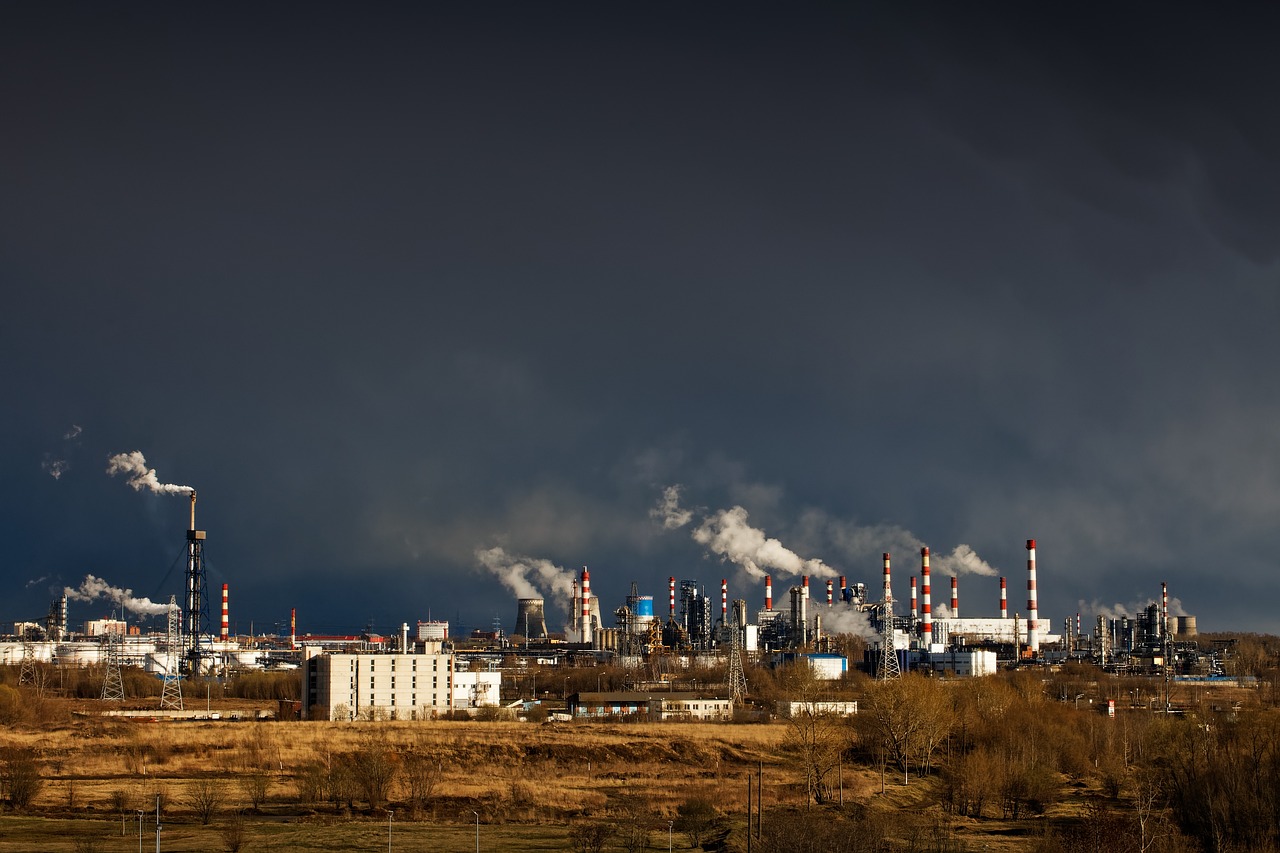The Role of Biofuel in Sustainable Agriculture Practices
This article explores how biofuels contribute to sustainable agriculture, examining their benefits, challenges, and potential to enhance farming efficiency while reducing environmental impact.
Biofuels are renewable energy sources derived from organic materials, such as crops, agricultural waste, and other biological matter. They play a vital role in promoting sustainable agricultural practices by providing an alternative to fossil fuels. The two main types of biofuels are bioethanol and biodiesel, both of which are produced through different processes. Bioethanol is primarily made from fermenting sugars found in crops like corn and sugarcane, while biodiesel is produced from oils extracted from plants or animal fats. The significance of biofuels lies in their ability to reduce reliance on non-renewable energy sources, thus fostering a more sustainable farming ecosystem.
The integration of biofuels in agriculture offers a plethora of advantages that extend beyond just energy production. One of the most notable benefits is the reduction of greenhouse gas emissions. By switching to biofuels, farmers can significantly lower their carbon footprint, making a positive impact on the environment. Furthermore, biofuels contribute to improved soil health through the addition of organic matter and nutrient cycling, which can lead to enhanced crop yields. Additionally, biofuels provide farmers with greater energy independence, reducing their vulnerability to fluctuating fossil fuel prices.
One of the most pressing issues of our time is climate change, and biofuels play a crucial role in addressing this challenge. By utilizing biofuels, farmers can help lower carbon emissions compared to traditional fossil fuels. This transition is essential for mitigating climate change and promoting a greener agricultural sector. The lifecycle emissions of biofuels, when analyzed, reveal a significant reduction in overall environmental impact compared to conventional energy sources. For instance, biofuels can reduce greenhouse gas emissions by up to 80% over their lifecycle.
Examining the lifecycle emissions of biofuels provides insights into their environmental benefits. A comprehensive lifecycle analysis considers all stages of production, from raw material extraction to end-use. When comparing biofuels to fossil fuels, it's evident that biofuels can significantly reduce overall emissions. For example, a study might show the following emissions data:
| Energy Source | CO2 Emissions (gCO2/kWh) |
|---|---|
| Fossil Fuels | 900 |
| Biofuels | 180 |
Integrating biofuels with carbon sequestration practices can further enhance their sustainability. Farmers can adopt methods that capture and store carbon in the soil, effectively reducing atmospheric CO2 levels. Techniques such as cover cropping and reduced tillage promote healthy soil ecosystems, which in turn support biofuel production. This synergy not only aids in climate mitigation but also improves soil fertility and crop resilience.
Biofuels contribute to soil health in numerous ways. By adding organic matter to the soil, they enhance nutrient cycling, which is vital for robust plant growth. This process not only leads to improved crop yields but also increases resilience against pests and diseases. Farmers who incorporate biofuels into their practices often notice healthier crops and a more vibrant ecosystem on their farms, demonstrating the interconnectedness of energy production and sustainable agriculture.
Despite the numerous benefits, the adoption of biofuels in agriculture is not without its challenges. Economic viability is a significant concern, as farmers must weigh the costs associated with biofuel production against potential returns. Additionally, there is competition for land use, as some crops designated for biofuel production could otherwise be used for food. Technological barriers also pose a challenge, as advancements in biofuel production efficiency are crucial for widespread adoption.
The cost-effectiveness of biofuels is a critical factor in their adoption. Farmers need to consider the financial implications of switching to biofuels, including initial investments and ongoing operational costs. While biofuels can ultimately lead to savings, the upfront costs can be a deterrent. It’s essential for farmers to analyze their specific circumstances and weigh the long-term benefits against short-term expenses.
Advancements in technology are essential for improving biofuel production efficiency. Current innovations in the field include genetic engineering of crops to increase yield and reduce resource inputs. However, further research and development are needed to overcome existing barriers and make biofuels a more viable option for farmers. The push for innovation in biofuel technologies will play a pivotal role in shaping the future of sustainable agriculture.
The future of biofuels in sustainable agriculture looks promising, with ongoing research and policy support aimed at overcoming challenges and enhancing their role in farming practices. As more farmers recognize the benefits of biofuels, their adoption is likely to increase, leading to a more sustainable agricultural landscape.
Government policies and incentives play a vital role in promoting the use of biofuels. Current initiatives, such as subsidies for biofuel production and tax breaks for farmers who adopt sustainable practices, are crucial for encouraging the transition to biofuels. These policies not only support farmers financially but also contribute to the overall goal of reducing greenhouse gas emissions in the agricultural sector.
Emerging technologies and innovative practices in biofuel production are paving the way for a more sustainable agricultural future. From advanced fermentation techniques to the use of waste materials for biofuel production, the focus is shifting towards efficiency and environmental stewardship. As these innovations continue to develop, they will undoubtedly enhance the role of biofuels in sustainable agriculture.
- What are biofuels? Biofuels are renewable energy sources made from organic materials, such as plants and waste.
- How do biofuels benefit agriculture? They reduce greenhouse gas emissions, improve soil health, and enhance energy independence for farmers.
- What challenges do farmers face when adopting biofuels? Economic viability, land use competition, and technological barriers are significant challenges.
- What is the future of biofuels in agriculture? With ongoing research and policy support, the future looks promising for biofuels in sustainable agriculture.

Understanding Biofuels
Biofuels are a fascinating and essential part of the renewable energy landscape. They are derived from organic materials, such as plants and animal waste, which makes them a sustainable alternative to traditional fossil fuels. But what exactly are biofuels? In simple terms, they are fuels that can be produced from biomass—essentially any material that comes from living organisms. This includes everything from crops like corn and sugarcane to waste products from livestock and even used cooking oil!
There are two main types of biofuels: bioethanol and biodiesel. Bioethanol is primarily made from fermenting sugars found in crops, while biodiesel is produced through a chemical process called transesterification, which converts fats and oils into fuel. Both types play a crucial role in promoting sustainable agricultural practices by providing cleaner energy sources that can power farm machinery, reduce reliance on imported fuels, and ultimately lower greenhouse gas emissions.
The significance of biofuels in sustainable agriculture cannot be overstated. They not only help in reducing the carbon footprint associated with farming but also contribute to the circular economy. For instance, the by-products of biofuel production can be used as fertilizers, enhancing soil health and supporting crop growth. This interconnection between biofuels and agriculture creates a symbiotic relationship where both sectors can thrive.
Moreover, biofuels can enhance energy independence for farmers. Imagine a scenario where farmers can produce their own energy from crops grown on their land. This not only reduces their operational costs but also provides them with a sense of control over their energy resources. In this way, biofuels can be seen as a pathway towards greater self-sufficiency in the agricultural sector.
However, it's essential to approach biofuel production with a balanced perspective. While they offer numerous benefits, the methods of production and the types of feedstocks used can significantly impact their sustainability. For instance, using food crops for biofuel can lead to food security issues and competition for land. Therefore, understanding the full scope of biofuels involves examining their production processes, environmental impacts, and the economic implications for farmers and communities.
To summarize, biofuels represent a promising avenue for enhancing sustainability in agriculture. They are not just an alternative energy source; they are a multifaceted solution that can lead to improved soil health, reduced carbon emissions, and greater energy independence. As we delve deeper into the benefits and challenges of biofuels, it's crucial to keep these interconnected aspects in mind.

Benefits of Biofuels in Agriculture
When we think about the future of farming, it’s hard not to get excited about the role of biofuels. These renewable energy sources, derived from organic materials, are not just a passing trend; they are a fundamental shift towards more sustainable agricultural practices. One of the most significant benefits of using biofuels in agriculture is their ability to reduce greenhouse gas emissions. Unlike traditional fossil fuels, biofuels are produced from crops, waste materials, and other organic matter, which means they can help lower our overall carbon footprint. Imagine a world where farmers can power their equipment with energy that comes from their own fields—how cool is that?
But that’s not all! The integration of biofuels into agricultural practices can also lead to improved soil health. When biofuels are produced, they often involve the use of crop residues and other organic matter that can be returned to the soil. This process not only enhances the nutrient content of the soil but also promotes better nutrient cycling. The result? Healthier crops that are more resilient to pests and diseases, which is a win-win for farmers and the environment alike.
Furthermore, biofuels can enhance energy independence for farmers. By producing their own fuel, farmers can reduce their reliance on external energy sources, which can be both expensive and unstable. This self-sufficiency not only lowers costs but also provides farmers with more control over their operations. In a way, it’s like having your cake and eating it too—farmers can enjoy the benefits of reduced energy costs while contributing to a greener planet.
Let’s take a closer look at some of these benefits in a table format to see how biofuels stack up against traditional energy sources:
| Benefit | Biofuels | Traditional Fossil Fuels |
|---|---|---|
| Greenhouse Gas Emissions | Lower emissions | Higher emissions |
| Soil Health | Improves nutrient cycling | No impact |
| Energy Independence | Increases self-sufficiency | Depends on external sources |
In summary, the benefits of biofuels in agriculture are not just theoretical; they have practical implications for farmers and the environment. By reducing greenhouse gas emissions, enhancing soil health, and promoting energy independence, biofuels can play a pivotal role in creating a more sustainable agricultural landscape. So, the next time you hear about biofuels, remember that they are more than just an alternative energy source—they are a pathway to a greener, more resilient future for agriculture.
- What are biofuels? Biofuels are renewable energy sources made from organic materials such as crops, waste, and other biological matter.
- How do biofuels reduce greenhouse gas emissions? Biofuels emit fewer greenhouse gases compared to fossil fuels, helping to mitigate climate change.
- Can biofuels improve soil health? Yes! The use of biofuels can enhance soil health through the addition of organic matter and improved nutrient cycling.
- What is energy independence in farming? Energy independence refers to farmers' ability to produce their own fuel, reducing reliance on external energy sources.

Reducing Carbon Footprint
In today's world, where climate change looms large, reducing our carbon footprint has become more crucial than ever. Biofuels emerge as a beacon of hope in this battle against environmental degradation. Unlike traditional fossil fuels, biofuels are derived from organic materials such as crops, waste, and even algae. This means that they are not just renewable but also significantly lower in carbon emissions. When we use biofuels, we are essentially tapping into a cleaner energy source that helps mitigate the harmful effects of greenhouse gases.
One of the most compelling aspects of biofuels is their ability to reduce lifecycle emissions. This term refers to the total emissions produced from the production, transportation, and consumption of fuel. Studies have shown that biofuels can cut lifecycle emissions by up to 80% compared to conventional petroleum-based fuels. This remarkable reduction is primarily because biofuels are made from plants that absorb CO2 from the atmosphere as they grow. The process creates a closed carbon loop, where the carbon released during fuel combustion is offset by the carbon absorbed during plant growth.
To illustrate the impact of biofuels on carbon emissions, consider the following table:
| Fuel Type | Lifecycle Emissions (g CO2e/MJ) | Reduction Compared to Fossil Fuels (%) |
|---|---|---|
| Conventional Gasoline | 95 | 0 |
| Biodiesel | 40 | 58 |
| Bioethanol | 30 | 68 |
| Advanced Biofuels | 20 | 79 |
This table highlights that while conventional gasoline emits around 95 grams of CO2 equivalent per megajoule (g CO2e/MJ), biodiesel and bioethanol show impressive reductions. Advanced biofuels, in particular, showcase a remarkable reduction of up to 79%. Such statistics not only emphasize the importance of transitioning to biofuels but also illustrate the potential for significant environmental benefits.
Moreover, integrating biofuels into our energy systems can lead to carbon sequestration practices. This involves capturing and storing atmospheric carbon dioxide in the soil, which can be achieved through various agricultural techniques. For instance, planting cover crops or using no-till farming methods can enhance soil health and increase its capacity to store carbon. By combining biofuel production with these practices, farmers can create a synergistic effect that not only reduces emissions but also enriches the soil.
In conclusion, the role of biofuels in reducing our carbon footprint is undeniable. They offer a cleaner alternative to fossil fuels, significantly lower lifecycle emissions, and can be integrated with sustainable agricultural practices to enhance carbon sequestration. As we look toward a greener future, embracing biofuels is not just an option; it is a necessity for a sustainable agricultural landscape.
- What are biofuels? Biofuels are renewable energy sources produced from organic materials like plants and waste.
- How do biofuels reduce carbon emissions? Biofuels emit significantly less CO2 compared to fossil fuels, contributing to lower overall greenhouse gas emissions.
- What is lifecycle emissions? Lifecycle emissions refer to the total greenhouse gases emitted during the production, transportation, and use of a fuel.
- Can biofuels improve soil health? Yes, biofuels can enhance soil health through organic matter addition and nutrient cycling.

Lifecycle Emissions Analysis
When we talk about biofuels, it's essential to dive into the concept of lifecycle emissions. This term refers to the total greenhouse gas emissions produced from the inception to the end of a biofuel's life. From the cultivation of feedstock to the processing, distribution, and eventual combustion, each phase has its own environmental footprint. Understanding these emissions is crucial for evaluating the true sustainability of biofuels compared to traditional fossil fuels.
One of the most significant advantages of biofuels is their potential to reduce overall emissions. For instance, studies have shown that biofuels can lead to a 60% to 90% reduction in greenhouse gas emissions when compared to fossil fuels. This reduction occurs because the carbon dioxide released during combustion is offset by the carbon dioxide absorbed during the growth of the biomass used for fuel. Essentially, biofuels can be considered a closed carbon cycle.
To illustrate the lifecycle emissions of biofuels versus fossil fuels, let's look at the following table:
| Emission Source | Fossil Fuels (gCO2eq/MJ) | Biofuels (gCO2eq/MJ) |
|---|---|---|
| Feedstock Cultivation | 20 | 5 |
| Processing | 10 | 3 |
| Transportation | 15 | 7 |
| Combustion | 85 | 30 |
| Total Lifecycle Emissions | 130 | 45 |
This table highlights a stark contrast in emissions, showcasing that biofuels can significantly lower the total lifecycle emissions. However, it's important to note that not all biofuels are created equal. The type of feedstock, agricultural practices, and production methods play a critical role in determining the overall emissions profile.
Additionally, integrating practices such as carbon sequestration can further enhance the sustainability of biofuels. By capturing carbon during the growth phase and storing it in the soil, farmers can effectively mitigate some of the emissions associated with biofuel production. This dual approach not only improves the environmental footprint of biofuels but also enriches soil health.
In conclusion, the lifecycle emissions analysis of biofuels reveals a promising potential for reducing environmental impact compared to traditional fossil fuels. As we continue to innovate and improve our agricultural practices, the role of biofuels in sustainable agriculture becomes increasingly significant.
- What are biofuels? Biofuels are renewable energy sources derived from organic materials, such as plants and animal waste.
- How do biofuels reduce emissions? Biofuels release carbon dioxide when burned, but this is offset by the carbon absorbed during the growth of the biomass.
- Are all biofuels equally sustainable? No, the sustainability of biofuels varies based on the feedstock used, agricultural practices, and production methods.
- What is carbon sequestration? Carbon sequestration is the process of capturing and storing carbon dioxide to mitigate climate change.

Carbon Sequestration Practices
Integrating biofuels with carbon sequestration practices is a game-changer for sustainable agriculture. But what does that really mean? In essence, carbon sequestration refers to the process of capturing and storing atmospheric carbon dioxide (CO2) in the soil, plants, and other organic materials. This practice not only helps to combat climate change but also enhances the health of agricultural ecosystems.
When farmers adopt biofuel crops, they are essentially planting a renewable resource that can absorb CO2 during its growth cycle. This is where the magic happens! As these crops grow, they pull carbon from the atmosphere and store it in their biomass and the soil. This process can significantly reduce the amount of greenhouse gases in our atmosphere, contributing to a cleaner environment.
Moreover, the incorporation of cover crops and crop rotation can further enhance carbon sequestration. Cover crops, such as clover or rye, are planted during the off-season and not only protect the soil from erosion but also add organic matter back into the soil when they decompose. This organic matter is crucial for improving soil structure and fertility, leading to healthier crops. The cycle of planting, growing, and decomposing creates a rich tapestry of life in the soil, which acts like a sponge, soaking up carbon and improving agricultural resilience.
To give you a clearer picture, let’s look at a simplified table comparing traditional farming practices with those that integrate biofuels and carbon sequestration:
| Aspect | Traditional Farming | Biofuel and Carbon Sequestration Practices |
|---|---|---|
| Carbon Emissions | Higher due to fossil fuel use | Lower through renewable energy sources |
| Soil Health | Often degraded | Improved through organic matter addition |
| Crop Resilience | Vulnerable to pests and diseases | Enhanced through diverse cropping systems |
| Environmental Impact | Negative | Positive with reduced emissions |
As the demand for sustainable practices increases, farmers are becoming more aware of the benefits of integrating biofuels with carbon sequestration. Not only does it contribute to a healthier planet, but it also enhances the economic viability of their operations. By adopting these practices, farmers can create a more sustainable future for themselves and the generations to come.
In conclusion, the combination of biofuels and carbon sequestration practices is not just a trend; it's a vital strategy for achieving sustainability in agriculture. By understanding and implementing these practices, farmers can play a crucial role in mitigating climate change while enhancing their productivity and soil health.
- What are biofuels? Biofuels are renewable energy sources made from organic materials, such as crops and waste.
- How do biofuels reduce carbon emissions? Biofuels emit less CO2 compared to traditional fossil fuels when burned.
- What is carbon sequestration? It's the process of capturing and storing atmospheric CO2 to mitigate climate change.
- Can all crops be used for biofuels? Not all crops are suitable; specific plants are more efficient for biofuel production.
- How can farmers implement these practices? By integrating cover crops, crop rotation, and using biofuel crops, farmers can enhance carbon sequestration.

Enhancing Soil Health
Soil health is the backbone of productive agriculture, and biofuels play a significant role in enhancing this essential resource. When we talk about biofuels, we’re not just focusing on energy production; we’re also looking at how these renewable sources can positively impact our soil. One of the primary ways biofuels contribute to soil health is through the addition of organic matter. When biofuels are produced from crops like corn or sugarcane, the byproducts, such as crop residues, can be returned to the soil. This practice enriches the soil with nutrients and improves its structure, making it more resilient to erosion and degradation.
Moreover, the nutrient cycling that occurs when biofuels are integrated into agricultural practices is nothing short of remarkable. By utilizing cover crops and crop rotations, farmers can enhance the soil's nutrient profile. For instance, legumes can fix nitrogen in the soil, reducing the need for synthetic fertilizers. This not only cuts costs for farmers but also minimizes the risk of nutrient runoff into nearby water bodies, thus protecting aquatic ecosystems.
But how does this all translate to improved crop yields? Well, healthy soil is like a well-tuned engine. It provides plants with the nutrients they need to thrive, retains moisture, and supports beneficial microorganisms. When farmers adopt biofuel practices, they often see a notable increase in crop resilience against pests and diseases. Healthy soil can harbor a diverse community of microorganisms that outcompete harmful pathogens, leading to less reliance on chemical pesticides. Think of it as nature's way of maintaining balance—when the soil is alive and thriving, so are the crops.
In addition to these benefits, biofuels can also facilitate conservation tillage practices. By reducing the frequency of tilling, farmers can maintain soil structure and prevent erosion. This method helps retain moisture in the soil, which is crucial during dry spells, ultimately leading to better crop performance. The synergy between biofuels and sustainable farming practices creates a win-win scenario where farmers can produce energy while simultaneously enhancing their soil's health.
To summarize, the integration of biofuels in agriculture not only supports energy needs but also fosters a healthier soil ecosystem. This relationship is vital for achieving long-term sustainability in farming. As the demand for food continues to rise, leveraging biofuels could be a key strategy in ensuring that our soils remain productive and resilient for generations to come.
- What are biofuels? Biofuels are renewable energy sources derived from organic materials, such as plants and animal waste, used primarily for transportation and energy production.
- How do biofuels improve soil health? Biofuels contribute to soil health by adding organic matter, enhancing nutrient cycling, and promoting conservation practices that protect soil structure.
- Can biofuels help reduce chemical pesticide use? Yes, healthy soils foster beneficial microorganisms that can outcompete harmful pathogens, reducing the need for chemical pesticides.
- What is conservation tillage? Conservation tillage is a farming practice that minimizes soil disturbance, promoting soil health and moisture retention.

Challenges in Biofuel Adoption
While the advantages of biofuels in agriculture are clear, the path to widespread adoption is riddled with challenges that cannot be overlooked. One of the most pressing issues is economic viability. Farmers often find themselves at a crossroads, weighing the costs associated with transitioning to biofuels against their traditional energy sources. This financial burden can be daunting, especially for small-scale farmers who operate on tight margins. The initial investments in biofuel technology, infrastructure, and training can deter many from making the switch, leaving them reliant on fossil fuels that may not align with their sustainability goals.
In addition to economic concerns, there is the issue of land use competition. As the demand for biofuels increases, so does the pressure on agricultural land. This can lead to a scenario where land that could be used to grow food is instead allocated for biofuel crops. The balance between food production and biofuel cultivation is delicate, and mismanagement could exacerbate food insecurity, particularly in developing regions. Farmers must navigate these complex dynamics carefully, ensuring that their efforts to produce biofuels do not come at the expense of food availability.
Another significant hurdle is the technological barriers that currently exist in biofuel production. Although advancements have been made, the technology required to produce biofuels efficiently and sustainably is still evolving. Farmers often lack access to the latest innovations, which can limit their ability to produce biofuels at a competitive cost. Moreover, ongoing research and development are crucial to overcoming these barriers. Without adequate support and investment in technology, the potential of biofuels as a sustainable energy source may remain unrealized.
To give you a clearer picture of these challenges, consider the following table that outlines the key obstacles in biofuel adoption:
| Challenge | Description |
|---|---|
| Economic Viability | High initial costs for technology and infrastructure can deter farmers from adopting biofuels. |
| Land Use Competition | Increasing demand for biofuels can lead to competition for agricultural land, impacting food production. |
| Technological Barriers | Limited access to advanced technology hampers efficient biofuel production. |
In conclusion, while biofuels hold tremendous promise for sustainable agriculture, addressing these challenges is essential for their successful adoption. Farmers, policymakers, and researchers must collaborate to create solutions that enhance the economic feasibility of biofuels, manage land use effectively, and advance technology. Only then can we unlock the full potential of biofuels in fostering a greener, more sustainable agricultural landscape.
- What are biofuels? Biofuels are renewable energy sources derived from organic materials, such as plants and animal waste, used primarily for energy production.
- How do biofuels benefit agriculture? They help reduce greenhouse gas emissions, improve soil health, and enhance energy independence for farmers.
- What are the main challenges in adopting biofuels? Economic viability, land use competition, and technological barriers are the primary challenges faced by farmers.
- Can biofuels contribute to food security? Yes, but careful management is required to ensure that biofuel production does not compromise food availability.

Economic Viability
The economic viability of biofuels in agriculture is a crucial consideration for farmers and stakeholders in the agricultural sector. With rising energy costs and increasing pressure to adopt sustainable practices, the financial implications of biofuel use cannot be overlooked. Farmers often face a dilemma: should they invest in biofuels, which may require initial capital outlay, or stick with traditional fossil fuels that have been the norm for decades? This decision is not just about immediate costs but also about long-term benefits and savings.
One of the primary factors influencing the economic viability of biofuels is their cost-effectiveness. Although biofuels can be more expensive to produce than fossil fuels initially, the long-term savings can be significant. For instance, biofuels can reduce dependency on imported oil, thereby enhancing energy security and stabilizing costs. Furthermore, biofuels can often be produced from locally sourced materials, which means farmers can capitalize on local resources and potentially lower transportation costs.
Additionally, the market demand for sustainable products is on the rise. Consumers are increasingly willing to pay a premium for products that are environmentally friendly. This trend provides farmers with an opportunity to differentiate their products in the market, potentially leading to higher profit margins. However, to fully realize these benefits, farmers need to be aware of the various factors influencing the economic landscape of biofuel production. These factors include:
- Production Costs: The costs associated with growing, harvesting, and processing biofuel crops can vary significantly.
- Subsidies and Incentives: Government policies play a vital role in making biofuels economically feasible. Subsidies can help offset production costs.
- Market Prices: The fluctuating prices of both biofuels and fossil fuels can impact profitability.
To illustrate the potential cost differences, consider the following table, which compares the average production costs of biofuels versus traditional fossil fuels:
| Fuel Type | Average Production Cost (per gallon) |
|---|---|
| Biofuels | $3.00 - $5.00 |
| Fossil Fuels | $2.50 - $4.00 |
While the initial costs of biofuels may be higher, the potential for long-term savings and environmental benefits can make them a worthwhile investment. Farmers must also consider the technological advancements in biofuel production that are continuously improving efficiency and reducing costs. The ongoing research and development in this field promise to enhance the economic viability of biofuels, making them a more attractive option for sustainable agriculture.
In conclusion, the economic viability of biofuels in agriculture is a multifaceted issue that requires careful consideration. By weighing the initial costs against the long-term benefits and staying informed about market trends and technological advancements, farmers can make informed decisions that not only benefit their bottom line but also contribute to a more sustainable agricultural future.
- What are biofuels? Biofuels are renewable energy sources made from organic materials, such as plants and animal waste.
- How do biofuels benefit agriculture? They reduce greenhouse gas emissions, improve soil health, and enhance energy independence.
- Are biofuels economically viable? Yes, while they may have higher initial costs, long-term savings and market demand for sustainable products can make them financially beneficial.
- What challenges do farmers face in adopting biofuels? Economic viability, land use competition, and technological barriers are some of the challenges.

Technological Barriers
When we talk about the adoption of biofuels in agriculture, it's impossible to ignore the that stand in the way. While the potential of biofuels is immense, the technology needed to produce them efficiently and sustainably is still evolving. One of the primary issues is the cost of production. Currently, many biofuels, especially those derived from advanced feedstocks, can be more expensive to produce than traditional fossil fuels. This price disparity makes it difficult for farmers to justify the switch, especially when their profit margins are already tight.
Moreover, the efficiency of production processes is another critical hurdle. Many existing technologies for converting biomass into biofuels are not yet optimized for large-scale production. This inefficiency can lead to higher emissions and lower yields, which defeats the purpose of using biofuels as a sustainable alternative. For instance, the conversion of agricultural waste into biofuel can be complex and requires advanced processing techniques that are not widely available in all regions.
Additionally, there is a significant need for research and development in this field. While some progress has been made, ongoing innovations are crucial to improve the economic viability and efficiency of biofuel production. This means investing in new technologies that can streamline the conversion processes and enhance the quality of biofuels. For example, breakthroughs in enzyme technology could lead to more efficient breakdown of biomass, resulting in higher yields and lower costs.
Another aspect to consider is the infrastructure required for biofuel production and distribution. Many regions lack the necessary facilities to process biofuels on a large scale, which can limit access for farmers. Furthermore, the existing fuel distribution networks are predominantly designed for fossil fuels, making it challenging to integrate biofuels seamlessly. This infrastructure gap creates a bottleneck that can stifle the growth of biofuel adoption in agriculture.
To tackle these technological barriers, collaboration between governments, research institutions, and the private sector is essential. By pooling resources and knowledge, stakeholders can accelerate the development of innovative solutions that address these challenges. For instance, public-private partnerships could lead to pilot programs that test new technologies and processes, paving the way for broader adoption.
In summary, while the technological barriers to biofuel adoption in agriculture are significant, they are not insurmountable. With continued investment in research, development, and infrastructure, the agricultural sector can harness the full potential of biofuels, ultimately leading to a more sustainable future.
- What are biofuels? Biofuels are renewable energy sources made from organic materials, such as plants and animal waste, used primarily for transportation and energy production.
- How do biofuels benefit agriculture? They help reduce greenhouse gas emissions, enhance soil health, and provide energy independence for farmers.
- What are the main challenges in adopting biofuels? Economic viability, technological barriers, and competition for land use are significant challenges.
- What role does technology play in biofuel production? Technology is crucial for improving the efficiency and cost-effectiveness of biofuel production processes.
- How can governments support biofuel adoption? Through policies and incentives that encourage research, development, and investment in biofuel technologies and infrastructure.

Future of Biofuels in Sustainable Agriculture
The future of biofuels in sustainable agriculture is not just a fleeting trend; it’s a vital component of a greener, more efficient farming landscape. As we look ahead, the integration of biofuels into agricultural practices promises to reshape how we think about energy use and environmental stewardship on farms. With ongoing research, innovative technologies, and supportive policies, biofuels are poised to play a significant role in addressing some of the most pressing challenges faced by modern agriculture.
One of the most exciting aspects of the biofuel revolution is the potential for innovation. Researchers and scientists are tirelessly working on improving the efficiency of biofuel production. This includes optimizing the conversion of various organic materials into energy and finding new feedstocks that can be used without compromising food production. For instance, advancements in cellulosic ethanol production are paving the way for using agricultural waste and non-food crops, which can significantly reduce competition with food supplies.
Moreover, the importance of government policy support cannot be overstated. Policies that encourage the use of biofuels through incentives, subsidies, and grants are crucial in making biofuels a viable option for farmers. These initiatives not only help to lower the financial barriers associated with adopting biofuel technologies but also stimulate research and development efforts. As farmers see tangible benefits from these policies, they are more likely to invest in sustainable practices that incorporate biofuels.
Additionally, the concept of energy independence is becoming increasingly relevant. Farmers who utilize biofuels can reduce their reliance on fossil fuels, which are subject to volatile market prices and geopolitical tensions. By producing their own energy, farmers can stabilize their operational costs and enhance their resilience against external economic pressures. This shift towards self-sufficiency can lead to a more sustainable agricultural economy overall.
As we consider the future, it’s essential to acknowledge the role of community engagement in promoting biofuels. Farmers, researchers, and policymakers must collaborate to share knowledge and best practices. This collaboration can take many forms, including workshops, partnerships, and research initiatives. By fostering a community that embraces innovation and sustainability, we can create a robust framework for the successful integration of biofuels in agriculture.
In summary, the future of biofuels in sustainable agriculture is bright and filled with potential. With a focus on innovation, supportive policies, energy independence, and community engagement, biofuels can significantly enhance farming practices. As we move forward, it’s crucial to remain committed to these principles, ensuring that agriculture not only thrives but does so in a way that respects and nurtures our planet.
- What are biofuels? Biofuels are renewable energy sources derived from organic materials, such as plants and animal waste, used to replace fossil fuels.
- How do biofuels benefit agriculture? They help reduce greenhouse gas emissions, improve soil health, and enhance energy independence for farmers.
- What are the challenges of adopting biofuels? Key challenges include economic viability, land use competition, and technological barriers that need addressing.
- What innovations are being developed in biofuel production? Research is focused on improving production efficiency and exploring new feedstocks, including agricultural waste.

Policy Support and Incentives
Government policies and incentives are pivotal in shaping the landscape of biofuel adoption in sustainable agriculture. These initiatives not only promote the use of biofuels but also aim to create a favorable economic environment for farmers. By providing financial support, tax breaks, and grants, governments can significantly reduce the initial costs associated with transitioning to biofuel technologies. This can be particularly beneficial for small to medium-sized farms that may struggle with the upfront investment required for biofuel production systems.
One of the most impactful ways to encourage biofuel adoption is through subsidies. These financial aids can help offset the costs of biofuel production, making it more appealing for farmers to switch from conventional fossil fuels. For instance, a government might offer subsidies for purchasing biofuel equipment or for the cultivation of specific biofuel crops. This not only lowers the financial barrier but also incentivizes farmers to engage in practices that are beneficial for the environment.
Additionally, regulatory frameworks can play a crucial role in promoting biofuels. Policies that mandate a certain percentage of biofuel use in transportation or agriculture can drive demand and encourage farmers to adopt biofuel technologies. For example, a law requiring that a specific amount of fuel used in agricultural machinery must be biofuel can create a market for these products, encouraging farmers to invest in biofuel production.
Moreover, the integration of biofuels into national energy strategies can enhance energy security and independence. By supporting biofuel initiatives, governments can reduce reliance on imported fossil fuels, which can be subject to volatile prices and supply disruptions. This not only stabilizes the agricultural sector but also boosts local economies by keeping energy spending within the community.
In terms of innovation, research and development grants can catalyze advancements in biofuel technologies. By funding research into more efficient production methods or new biofuel crop varieties, governments can help lower production costs and improve the sustainability of biofuels. For example, a table summarizing key government incentives and their impacts could look like this:
| Incentive Type | Description | Impact |
|---|---|---|
| Subsidies | Financial aid for biofuel equipment and crop cultivation | Lowered initial costs for farmers |
| Regulatory Mandates | Requirements for biofuel use in agriculture | Increased demand for biofuels |
| Research Grants | Funding for biofuel technology advancements | Improved efficiency and sustainability |
In conclusion, the role of policy support and incentives in promoting biofuels cannot be overstated. By creating a robust framework that encourages biofuel adoption, governments can not only enhance the sustainability of agriculture but also contribute to broader environmental goals. As we look to the future, it is essential for policymakers to continue exploring innovative ways to support the biofuel industry, ensuring that it remains a viable and attractive option for farmers everywhere.
- What are biofuels? Biofuels are renewable energy sources derived from organic materials, such as plants and animal waste.
- How do biofuels benefit agriculture? They reduce greenhouse gas emissions, improve soil health, and enhance energy independence for farmers.
- What challenges do farmers face in adopting biofuels? Economic viability, land use competition, and technological barriers are significant challenges.
- What role do government policies play? Policies provide financial incentives, subsidies, and regulatory support to encourage biofuel use.

Innovations in Biofuel Production
As we delve into the future of biofuels, it's impossible to ignore the groundbreaking innovations that are transforming the way we produce these renewable energy sources. The agricultural sector is witnessing a wave of technological advancements that not only enhance the efficiency of biofuel production but also align with the principles of sustainability. One of the most exciting developments is the rise of cellulosic biofuels, which are derived from non-food biomass, such as agricultural residues, wood chips, and even municipal waste. This innovation addresses the significant concern of food vs. fuel, allowing us to harness energy without compromising food security.
Moreover, advancements in genetic engineering are playing a pivotal role in biofuel production. Scientists are now able to modify crops to increase their biomass yield and improve their energy content. For instance, genetically engineered switchgrass and miscanthus have shown promise in producing higher quantities of biofuel per acre compared to traditional crops. This not only maximizes land use but also minimizes the environmental footprint associated with farming.
In addition to genetic advancements, synthetic biology is revolutionizing the biofuel landscape. By engineering microorganisms to convert organic materials directly into biofuels, researchers are paving the way for more efficient production processes. These engineered microbes can break down complex organic matter and produce fuels like ethanol and biodiesel more effectively than traditional fermentation methods. This innovation is crucial, as it can significantly reduce the costs and energy required for biofuel production.
Another exciting trend is the utilization of algae for biofuel production. Algae are incredibly efficient at converting sunlight into energy and can produce oils that are suitable for biodiesel. The cultivation of algae can take place in non-arable land, thus avoiding competition with food crops. Furthermore, algae can absorb carbon dioxide during their growth, effectively acting as a carbon sink and contributing to overall carbon sequestration efforts. The potential for algae-based biofuels is enormous, and ongoing research is focused on optimizing growth conditions and extraction processes to make this a viable energy source.
To support these innovations, collaborative efforts between governments, research institutions, and private companies are essential. Initiatives that promote research and development in biofuel technologies can lead to breakthroughs that make biofuels more accessible and economically viable for farmers. For instance, public-private partnerships can facilitate funding for pilot projects that test new biofuel production methods in real-world agricultural settings.
As we look ahead, it's clear that the future of biofuel production is not just about improving existing technologies but also about embracing new ideas that challenge conventional practices. The innovations in biofuel production are not only paving the way for a more sustainable agricultural sector but also contributing to a greener planet. With continued investment and research, we can expect to see even more exciting developments that will make biofuels a cornerstone of sustainable agriculture.
- What are biofuels? Biofuels are renewable energy sources made from organic materials, such as plants and waste, that can be used to replace fossil fuels.
- How do biofuels benefit agriculture? They reduce greenhouse gas emissions, improve soil health, and enhance energy independence for farmers.
- What are cellulosic biofuels? These are biofuels produced from non-food biomass, which helps mitigate the food vs. fuel debate.
- Can algae be used for biofuel production? Yes, algae can produce oils for biodiesel and have a lower environmental impact.
Frequently Asked Questions
- What are biofuels and how do they relate to sustainable agriculture?
Biofuels are renewable energy sources made from organic materials, such as plants and animal waste. They play a crucial role in sustainable agriculture by providing a cleaner alternative to fossil fuels, which helps reduce greenhouse gas emissions and promotes environmentally friendly farming practices.
- How do biofuels contribute to reducing carbon emissions?
Biofuels have a lower carbon footprint compared to traditional fossil fuels. When used in agricultural operations, they help lower overall carbon emissions, making farming practices more sustainable and helping mitigate climate change.
- What are the economic benefits of using biofuels in agriculture?
Using biofuels can enhance energy independence for farmers, potentially leading to lower fuel costs in the long run. Additionally, biofuels can improve soil health and crop yields, contributing to a more profitable agricultural operation.
- What challenges do farmers face when adopting biofuels?
Farmers may encounter several challenges when adopting biofuels, including economic viability, competition for land use, and technological barriers. These issues need to be addressed to enhance the widespread use of biofuels in agriculture.
- How can policy support and incentives help promote biofuel use?
Government policies and incentives can provide financial assistance and resources for farmers, making it easier for them to adopt biofuels. These initiatives can significantly impact sustainable agricultural practices by encouraging the transition to cleaner energy sources.
- What innovations are being developed in biofuel production?
Emerging technologies in biofuel production focus on improving efficiency and sustainability. Innovations such as advanced fermentation processes and the use of non-food feedstocks are paving the way for a more sustainable agricultural future.



















